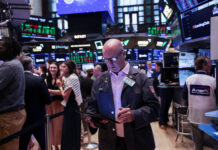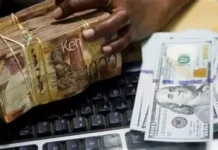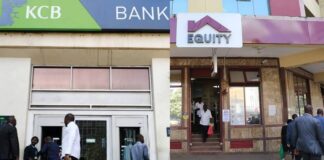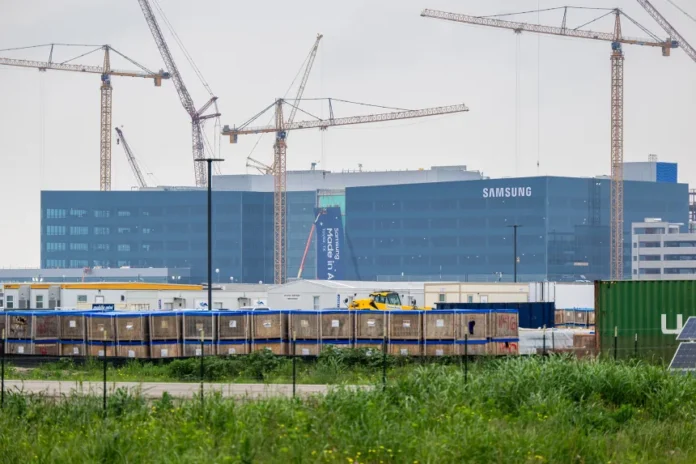
Samsung Electronics’ second-quarter operating profit plunged 55% to 4.7 trillion won ($3.4 billion), as the South Korean tech giant grapples with steep losses in its semiconductor division and struggles to stay competitive in the booming artificial intelligence (AI) chip market.
Once a dominant force in memory chips and a challenger in logic semiconductors, Samsung has seen its lead eroded by rivals like SK Hynix, Micron, and Taiwan’s TSMC. Operating profit in Samsung’s chip division, historically its most profitable segment, dropped nearly 94% year-on-year between April and June. Despite a modest revenue increase, the company blamed the dismal performance on poor factory utilization, inventory value adjustments, and ongoing impacts from U.S. export restrictions on advanced chips to China.
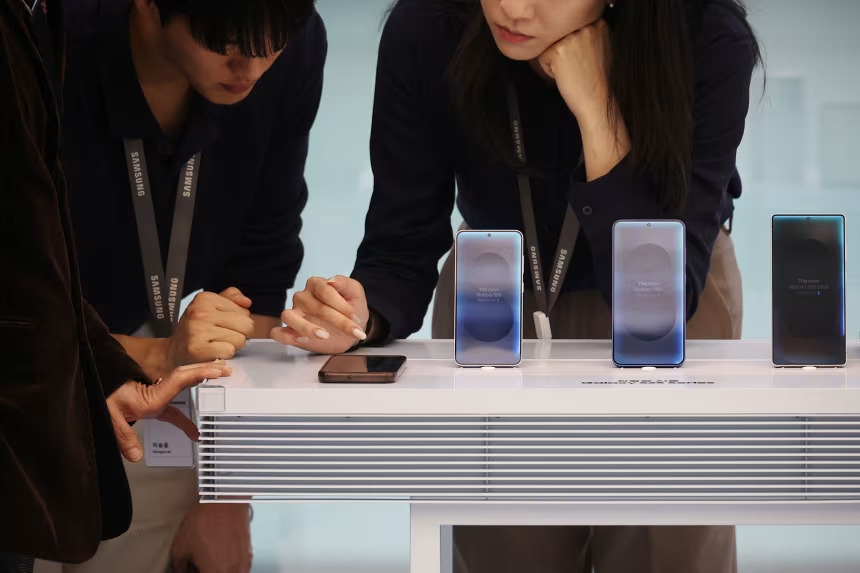
Samsung Electronics employees check the smartphone Galaxy S25 series at a Samsung store in Seoul, South Korea, April 15, 2025. Kim Hong-Ji/Reuters
Samsung’s shares fell nearly 2% following the earnings report, though losses were later trimmed. The results revived concerns over the tech giant’s future, particularly its delayed response to the AI-driven demand for high-bandwidth memory (HBM) chips, key components in AI processors used by companies like Nvidia and AMD. Industry analysts say Samsung’s HBM products have lagged behind in performance, costing it major supply opportunities.
In the DRAM market, Samsung has now been overtaken by SK Hynix, while its logic chip business trails TSMC by a wide margin, 68% market share for TSMC versus just 8% for Samsung, according to TrendForce.
CLSA’s head of Korea research, Sanjeev Rana, attributed the setback to a series of miscalculations, including underestimating the AI boom and investing in underperforming technologies. “They were slow to recognize the coming AI revolution,” he said.
However, a $16.5 billion contract announced this week with Tesla to manufacture next-generation AI chips has offered Samsung a much-needed boost. Tesla CEO Elon Musk confirmed that Samsung will produce its upcoming AI6 chips for self-driving vehicles and robotics at its Texas facility. The announcement propelled Samsung’s shares by nearly 7% to their highest level since September.
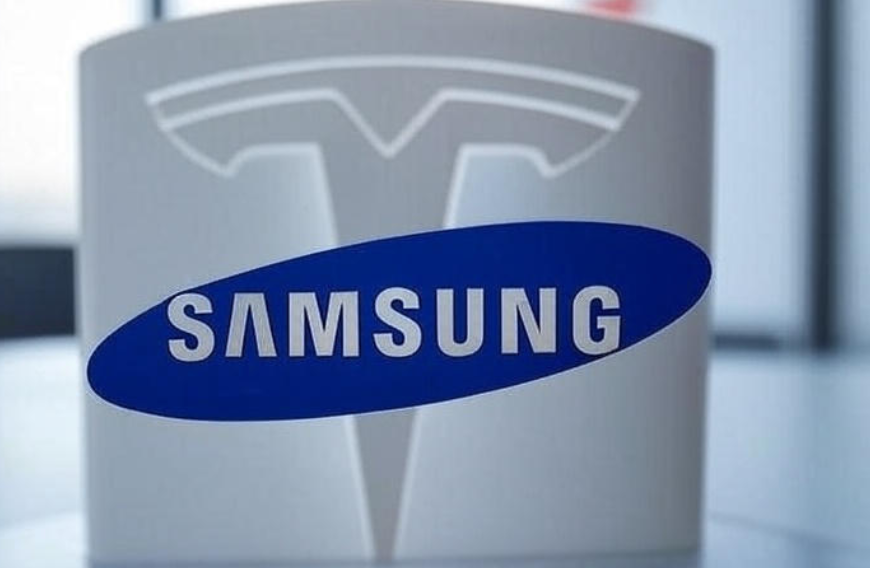
While mass production under the Tesla deal is not expected until 2027, industry experts say the partnership improves market sentiment and utilization of Samsung’s underused fabs. “It’s a big vote of confidence,” said Rana. “Samsung has started taking corrective steps, and the second half of the year could mark a turning point.”
Samsung said it will continue investing in AI-driven and high-value semiconductor products to regain competitiveness in the coming quarters.
Written By Rodney Mbua






